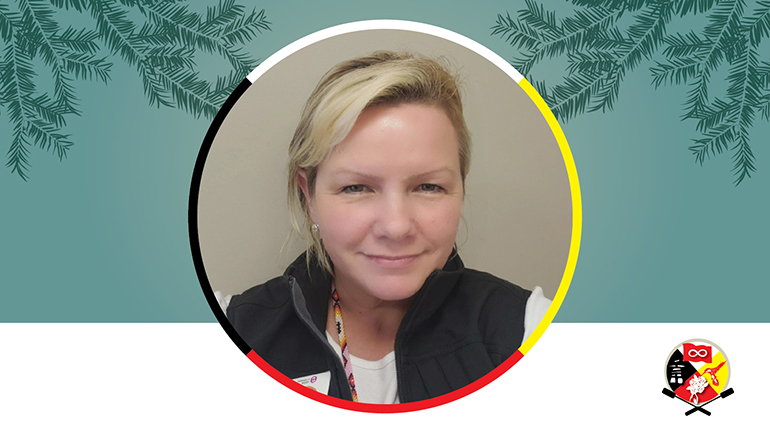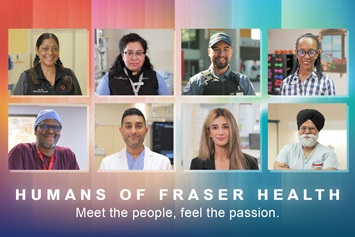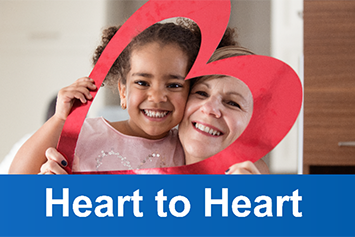
In celebration of B.C. Indigenous Nurses Day, Darlene shares her journey to becoming an Indigenous health liaison, and her thoughts on the future of health care.
Weytkp, “Hello everyone,” in Secwepemctsín.
My name is Darlene Dalby, I am a proud First Nations woman from Dakelh (Carrier) and Secwepemc (Shuswap) Nations.
My journey
My ancestry is complex. I had a distant relationship with my European father (settler), so I naturally grew deeply connected to my First Nations family. I spent summers living on reserve with my Granny May, uncles, aunties and so many cousins.
My mother and teacher, Karen, taught me the ways of our ancestors. When times were right, we collected berries, mushrooms and medicinal plants based on the seasons. I also fondly remember the days where we would harvest salmon, by canning, freezing and drying it for the winter months. These values and traditions humbled me as an adult—the gentle ways my family connects to the land and its practices are effortless.
This is the spirit I brought to my work, and what also inspired me to pursue nursing later in life, specifically at the age of 40.
I had two full careers until I returned to Vancouver Community College. My sons, Myles and Matt, became more independent, and that opened the opportunity for my own pursuits. I felt that I had more to give in a meaningful way, and nursing and Indigenous cultural safety stuck to me.
I have been a licensed practical nurse for over 10 years now.
My career started with Providence Health Care at St. Paul's Hospital, where I practiced nursing in many different units from surgery to maternity. My practice always encompassed advocating for my First Nations brothers and sisters that were in my care.
Today, I am a full-time Indigenous health liaison with Fraser Health where I provide support and advocacy for First Nations, Métis and Inuit patients and their families. It was a natural fit, and I simply love the work I do.
My outlook on the future
I see good and responsible nursing practices coming through schools now. I remember listening to a brief Indigenous cultural safety presentation when I was in school.
Now with the Truth and Reconciliation Commission of Canada and the In Plain Sight reports, times are changing in a good way. History is being rewritten and health care professionals are learning to see the systemic racism and inequalities Indigenous Peoples having been facing for generations.
When I think of what B.C. Indigenous Nurses Day means to me, it simply means to be heard. It brings me joy to see this wonderful shift happening. Employers are taking responsibility to help educate their staff by looking through a culturally-sensitive lens and the new generation of nurses are asking good questions and taking responsibility for their own learning.
I acknowledge there is lots to be done.
Indigenous nurses are still a small community, but I firmly believe this will change with opportunities and support from our federal government as part of their commitment to the Truth and Reconciliation Commission of Canada reports. One example I value is the work BC Nurses’ Union has done with creating the Indigenous Leadership Circle, a caucus for Indigenous nurses to have a voice in nursing today, and for the future.
I dedicate and honour my story to my Granny May, Grandma Elsie and Mother Karen along with many other aunties and cousins. These strong women were silenced as they grew up in a time when being an Indigenous woman was not valued.
With my work, I commit to honour their legacy and speak for them in a good way.
All my relations,
Darlene
Wednesday, April 10, is B.C. Indigenous Nurses Day, which celebrates the contributions of Indigenous nurses to health and wellness. April 10 was chosen to celebrate Charlotte Edith Anderson Monture, who was born on that day in 1890 and was the first Indigenous woman in Canada to become a registered nurse.
At the time, most Canadian nursing programs excluded Indigenous women and the Indian Act was a significant barrier faced by Indigenous Peoples who wanted higher education. Edith graduated first in her nursing class at New York’s New Rochelle Nursing School and was one of only a few Indigenous women to serve overseas during World War I with the United States Army Nurse Corps. She was also the first Indigenous woman to gain the right to vote in a Canadian federal election.
Learn more about how Indigenous health liaisons can help you navigate the health care system.
Learn more about how we connect Indigenous talent to fulfilling careers.


